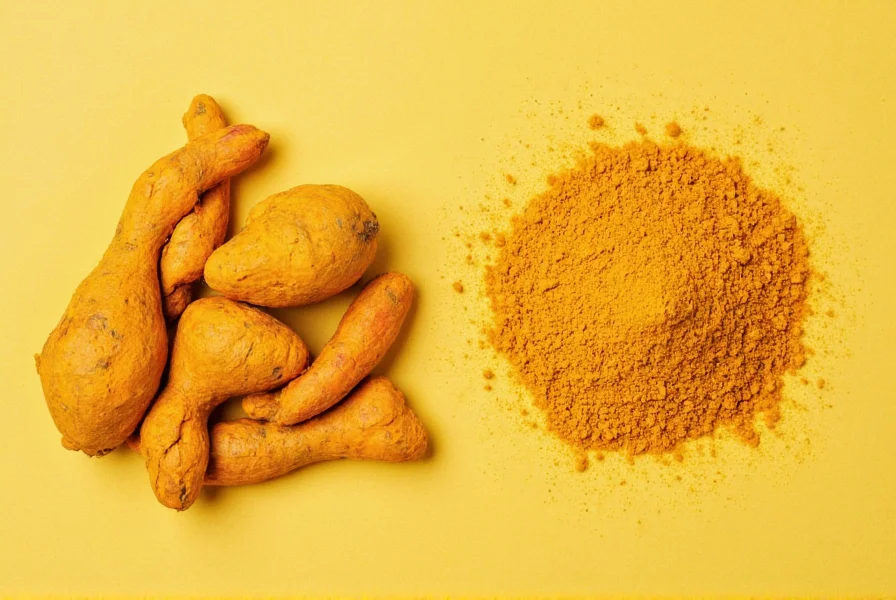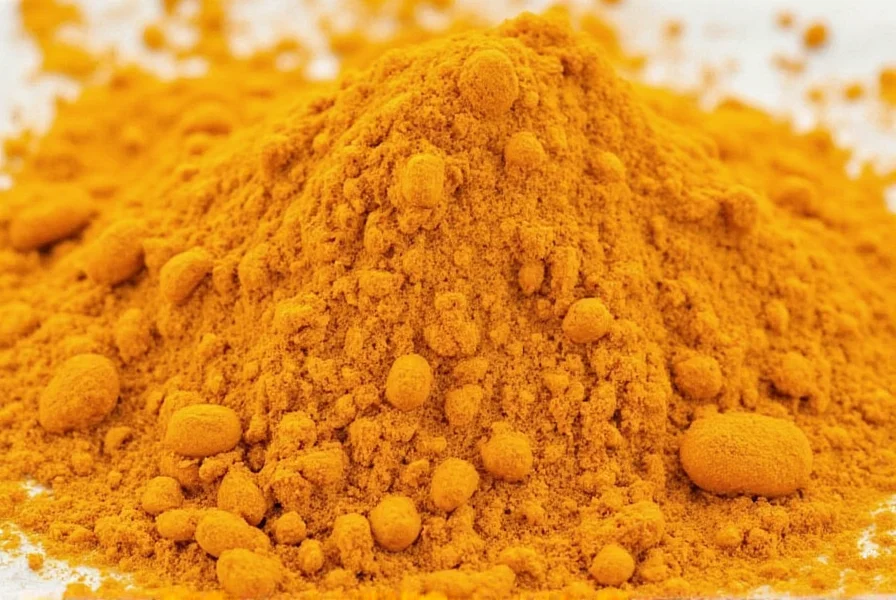Turmeric, the vibrant yellow spice commonly found in curry dishes, has gained widespread popularity for its potential health benefits. While moderate consumption is generally safe, understanding the side effects of too much turmeric is crucial for anyone considering regular or high-dose supplementation. This article examines the scientifically documented risks associated with turmeric overconsumption and provides evidence-based guidance on safe usage.
Understanding Turmeric and Its Active Components
Turmeric (Curcuma longa) contains curcuminoids, with curcumin being the most studied compound responsible for many of turmeric's purported health benefits. While culinary use in food poses minimal risk, concentrated supplements containing high levels of curcumin present different considerations. The potential side effects of excessive turmeric intake become more pronounced when consuming supplements rather than the spice in food.

Recommended Daily Intake Guidelines
The World Health Organization suggests an acceptable daily intake of 0-3 mg of curcumin per kilogram of body weight. For a 150-pound (68 kg) adult, this translates to approximately 200-250 mg of curcumin daily. Most clinical studies use doses between 500-2,000 mg of curcumin extract per day, typically divided into multiple doses.
| Form of Turmeric | Curcumin Content | Safe Daily Limit |
|---|---|---|
| Culinary turmeric powder | 2-8% curcumin | 3-5 grams (about 1-2 teaspoons) |
| Standardized curcumin extract | 95% curcumin | 500-2,000 mg |
| Enhanced absorption formulas | Varies (often 25-50% curcumin) | Follow product-specific guidelines |
Documented Side Effects of Excessive Turmeric Consumption
Digestive System Reactions
One of the most common negative effects of too much turmeric involves the digestive system. High doses can cause:
- Nausea and stomach upset
- Diarrhea or loose stools
- Acid reflux symptoms
- Abdominal pain in sensitive individuals
These effects typically occur at doses exceeding 1,000 mg of curcumin daily and often resolve when reducing the dosage.
Blood Thinning and Bleeding Risk
Turmeric's antiplatelet properties become significant at higher doses, potentially leading to serious side effects of excessive turmeric intake. Curcumin inhibits platelet aggregation, which can:
- Increase bleeding time
- Exacerbate bleeding disorders
- Interact dangerously with blood-thinning medications like warfarin
- Potentially cause bruising or nosebleeds
Individuals scheduled for surgery should discontinue high-dose turmeric supplements at least two weeks beforehand due to this blood-thinning effect of too much turmeric.
Gallbladder Complications
Turmeric stimulates bile production, which can be problematic for certain individuals. Those with gallstones or bile duct obstruction may experience:
- Increased gallbladder contractions
- Painful gallbladder attacks
- Worsening of existing gallbladder conditions
People with these conditions should avoid high-dose turmeric supplements without medical supervision.
Blood Sugar Interactions
While turmeric may help regulate blood sugar, excessive consumption can cause hypoglycemia (dangerously low blood sugar) in people taking diabetes medications. This risk of too much turmeric for diabetics requires careful monitoring of blood glucose levels when using turmeric supplements.
Iron Absorption Concerns
Curcumin can bind to iron, potentially reducing absorption. This effect becomes significant with high-dose supplementation and may contribute to iron deficiency in:
- Individuals with pre-existing iron deficiency
- Pregnant women
- People with anemia
Those with iron-related health concerns should discuss turmeric supplementation with their healthcare provider.
Who Should Avoid High-Dose Turmeric?
Certain populations face elevated health risks of excessive turmeric consumption and should exercise particular caution:
- Pregnant and breastfeeding women - Limited safety data exists for high-dose supplementation
- People with bleeding disorders - Increased risk of hemorrhage
- Those taking anticoagulant medications - Dangerous interactions possible
- Individuals with gallbladder disease - May trigger painful episodes
- People with hormone-sensitive conditions - Theoretical concerns about turmeric's estrogenic effects
Safe Turmeric Consumption Practices
To enjoy turmeric's potential benefits while minimizing risks:
- Start with low doses and gradually increase to assess tolerance
- Choose products with black pepper extract (piperine) to enhance absorption at lower doses
- Take turmeric with food to reduce digestive side effects
- Stay within recommended daily limits unless under medical supervision
- Disclose all supplements to your healthcare providers, especially before surgery
When to Consult a Healthcare Professional
Seek medical advice if you experience persistent symptoms after turmeric consumption, particularly:
- Unexplained bleeding or bruising
- Severe digestive distress lasting more than 24 hours
- Symptoms of gallbladder pain (right upper abdominal pain)
- Hypoglycemia symptoms if you have diabetes
Always consult with a healthcare provider before starting high-dose turmeric supplementation if you have underlying health conditions or take prescription medications.
Conclusion: Balancing Benefits and Risks
While culinary use of turmeric in food is generally safe for most people, high-dose supplementation requires careful consideration. Understanding the adverse effects of excessive turmeric intake helps consumers make informed decisions about their health. The key to safely enjoying turmeric's potential benefits lies in moderation, awareness of personal health conditions, and consultation with healthcare professionals when necessary. Remember that more isn't always better when it comes to dietary supplements.
Frequently Asked Questions
How much turmeric is too much per day?
For most adults, consuming more than 8 grams of turmeric powder or 2,000 mg of curcumin extract daily is considered excessive. The World Health Organization recommends no more than 3 mg of curcumin per kilogram of body weight. For culinary use, 1-2 teaspoons (3-6 grams) of turmeric powder daily is generally safe, while supplement doses should typically stay between 500-2,000 mg of curcumin extract.
Can too much turmeric cause liver damage?
While turmeric is generally considered liver-protective at normal doses, extremely high doses may potentially cause liver issues in susceptible individuals. Some case reports have documented elevated liver enzymes associated with very high-dose turmeric supplements, particularly in people with pre-existing liver conditions. Most research indicates turmeric is safe for liver health within recommended doses, but those with liver disease should consult their doctor before taking high-dose supplements.
What are the signs of turmeric overdose?
Symptoms of turmeric overdose may include severe digestive upset (nausea, vomiting, diarrhea), excessive bleeding or bruising, dizziness, rapid heartbeat, and in rare cases, allergic reactions. Most side effects occur gradually with prolonged high-dose use rather than from a single overdose. If you experience severe symptoms after consuming large amounts of turmeric, seek medical attention immediately.
How long do turmeric side effects last?
Most mild side effects from excessive turmeric consumption, such as digestive upset, typically resolve within 24-48 hours after discontinuing use. Blood-thinning effects may persist for several days, which is why stopping turmeric supplements at least two weeks before surgery is recommended. If symptoms persist beyond 72 hours or are severe, consult a healthcare professional.
Can turmeric interact with medications?
Yes, turmeric can interact with several medications. It may enhance the effects of blood thinners (warfarin, aspirin), increase the risk of bleeding with NSAIDs, lower blood sugar too much when combined with diabetes medications, and potentially interfere with chemotherapy drugs. Always consult your healthcare provider before combining turmeric supplements with prescription medications to avoid dangerous interactions.











 浙公网安备
33010002000092号
浙公网安备
33010002000092号 浙B2-20120091-4
浙B2-20120091-4